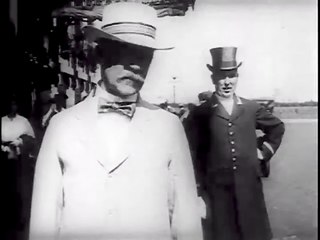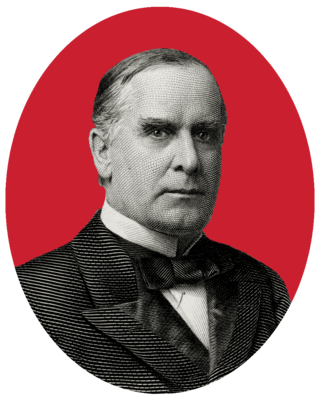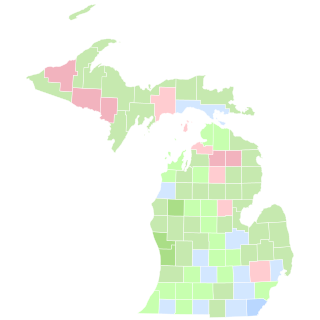Related Research Articles

Theodore Roosevelt Jr., often referred to as Teddy or by his initials, T. R., was an American politician, statesman, soldier, conservationist, naturalist, historian, and writer who served as the 26th president of the United States from 1901 to 1909. He previously served as the 25th vice president under President William McKinley from March to September 1901 and as the 33rd governor of New York from 1899 to 1900. Assuming the presidency after McKinley's assassination, Roosevelt emerged as a leader of the Republican Party and became a driving force for anti-trust and Progressive policies.

The 1912 United States presidential election was the 32nd quadrennial presidential election, held on Tuesday, November 5, 1912. Democratic Governor Woodrow Wilson of New Jersey unseated incumbent Republican President William Howard Taft while defeating former President Theodore Roosevelt and Socialist Party nominee Eugene V. Debs.

The presidency of Theodore Roosevelt started on September 14, 1901, when Theodore Roosevelt became the 26th president of the United States upon the assassination of President William McKinley, and ended on March 4, 1909. Roosevelt had been the vice president for only 194 days when he succeeded to the presidency. A Republican, he ran for and won by a landslide a four-year term in 1904. He was succeeded by his protégé and chosen successor, William Howard Taft.

The 1912 Republican National Convention was held at the Chicago Coliseum, Chicago, Illinois, from June 18 to June 22, 1912. The party nominated President William H. Taft and Vice President James S. Sherman for re-election for the 1912 United States presidential election.

The Progressive Party was a third party in the United States formed in 1912 by former president Theodore Roosevelt after he lost the presidential nomination of the Republican Party to his former protégé rival, incumbent president William Howard Taft. The new party was known for taking advanced positions on progressive reforms and attracting leading national reformers. The party was also ideologically deeply connected with America's indigenous radical-liberal tradition.
These are the references for further information regarding the history of the Republican Party in the U.S. since 1854.

The Fourth Party System was the political party system in the United States from about 1896 to 1932 that was dominated by the Republican Party, except the 1912 split in which Democrats captured the White House and held it for eight years.

The Fifth Party System, also known as the New Deal Party System, is the era of American national politics that began with the election of Franklin D. Roosevelt to President of the United States in 1932. Roosevelt's implementation of his popular New Deal expanded the size and power of the federal government to an extent unprecedented in American history, and marked the beginning of political dominance by the Democratic Party that would remain largely unbroken until 1952. This period also began the ideological swapping of Democrats and Republicans into their modern versions, largely due to most Black voters switching from the Republican Party to the Democratic Party, while most conservative, White, usually southern Democrats shifted to the Republican Party as Democrats began increasingly prioritizing civil rights; this process accelerated into the 1960s. The Fifth Party System followed the Fourth Party System, also known as the Progressive Era, and was itself followed by the Sixth Party System.

The 1916 Republican National Convention was held in Chicago from June 7 to June 10. A major goal of the party's bosses at the convention was to heal the bitter split within the party that had occurred in the 1912 presidential campaign. In that year, Theodore Roosevelt bolted the GOP and formed his own political party, the Progressive Party, which contained most of the GOP's liberals. William Howard Taft, the incumbent president, won the nomination of the regular Republican Party. This split in the GOP ranks divided the Republican vote and led to the election of Democrat Woodrow Wilson.

The 1900 Republican National Convention was held June 19 to June 21 in the Exposition Auditorium, Philadelphia, Pennsylvania. The Exposition Auditorium was located south of the University of Pennsylvania, and the later Convention Hall was constructed along the building's east wall. It was demolished in 2006.

Pine Knot is a historic cabin located 14 miles (23 km) south of Charlottesville, Virginia in Albemarle County, Virginia. The cabin was owned and occupied by former President of the United States Theodore Roosevelt and his wife Edith Kermit Roosevelt, and used by Roosevelt and the first lady while he was president, although no official business took place there. In 1905, Edith Roosevelt spent $280 to purchase the fifteen-acre property with its rustic worker's cabin, and she bought an additional seventy-five acres in 1911. The cabin is owned by the Edith and Theodore Roosevelt Pine Knot Foundation and is open for visits by appointment.
Environmental stewardship refers to the responsible use and protection of the natural environment through active participation in conservation efforts and sustainable practices by individuals, small groups, nonprofit organizations, federal agencies, and other collective networks. Aldo Leopold (1887–1949) championed environmental stewardship in land ethics, exploring the ethical implications of "dealing with man's relation to land and to the animals and plants which grow upon it."
The rhetorical presidency is a political communication theory that describes the communication and government style of U.S. presidents in the twentieth century. This theory describes the transition from a presidency that directed rhetoric toward the United States Congress and other government bodies, to one that addresses rhetoric, policy and ideas directly to the public.

The 1912 United States presidential election in Michigan took place on November 5, 1912, as part of the 1912 United States presidential election. Voters chose 15 representatives, or electors, to the Electoral College, who voted for president and vice president.
This bibliography of Theodore Roosevelt is a list of published works about Theodore Roosevelt, the 26th president of the United States. The titles are selected from tens of thousands of publications about him.
This bibliography of Woodrow Wilson is a list of published works about Woodrow Wilson, the 28th president of the United States. For a more comprehensive listing see Peter H. Buckingham, Woodrow Wilson: A bibliography of his times and presidency.

The 1916 United States presidential election in Alabama took place on November 7, 1916, as part of the nationwide presidential election. State voters chose twelve representatives, or electors, to the Electoral College, who voted for president and vice president.

Louis Hyman Bean was an American economic and political analyst who predicted Harry S. Truman's victory in the 1948 presidential election.
References
- ↑ Davis, J. H., Schoorman, F. D., & Donaldson, L. (1997). Toward a stewardship theory of management. Academy of Management Review, 22(1), 20-47.
- ↑ "The stewardship theory - Presidential Power".
- ↑ Presidential Stewardship, Humphrey Fellows at Cronkite School of Journalism and Mass Communication – ASU
- ↑ Constitutional Interpretation: Powers of Government, Volume 1